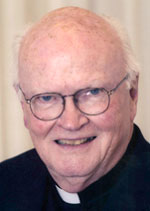Shirley Sagawa has been called the godmother of national service and volunteerism in America. She’s been at it for several decades shaping policy as a staff assistant to the late Senator Edward M. Kennedy, working at the Corporation for National and Community Service, serving as a staff member in the Clinton White House and currently as a senior fellow at the Center for American Progress.
Her book, “The American Way to Change: How National Service and Volunteers Are Transforming America” is the best single source I’ve seen for information on the countless civilian national service initiatives that have sprung up in this country over the past few decades.
Her message is simple, direct and clear: The rights of citizenship ought to be accompanied by responsibilities and chief among them is citizen service.
Youth should regard service as a “rite of passage” she writes. They need a sense of purpose, as do adults, and a sense of purpose can be gained through service. “Having a purpose is as important for youths making choices about their futures as it is for people rebuilding their lives after a crisis or older adults finding a way to make their retirement years meaningful,” she says.
And then Sagawa adds this telling point: “Service is not the only path to purpose, but it is a well-walked one that can help Americans of all ages and backgrounds transform their own lives for the better.”
The transformation occurs not only in the life of the service provider but also in the community where the service is rendered. This book is replete with examples of community improvements due to citizen service.
And even casual observers of our decaying urban infrastructure, the decline in the quality of public education, the rise of poverty and illiteracy, the neglect of the environment, and the health care needs of both infants and elderly, can see the need for more community service in these and other areas.
There is a new buzz in policy-formation circles about service opportunities as a remedy for the growing purposelessness among young adults. But there should also be efforts to acquaint retirees about the contributions they can make, particularly to the poor and to disadvantaged children, through voluntary service.
It is not well known that the founding motto of the American Association of Retired Persons was “To serve, not be served.” This has an evident link to the Gospel (Mt 20:28) and should thus be useful in inviting Christians who are retirees to consider service.
Ethel Percy Andrus, founder in 1958 of the AARP, wrote then that older adults “have a responsibility to remain active in retirement … to cooperate with responsible … agencies concerned with programs and activities that will make our nation strong.” She also argued that “we learn the inner secret of happiness when we learn to direct our inner drives, our interest and our attention to something outside ourselves.”
That lesson, of course, should be shared with the young who, for their own good, eventually have to understand that the really good life is a life lived generously in the service of others.
***
Jesuit Father Byron is university professor of business and society at St. Joseph’s University, Philadelphia. Email: wbyron@sju.edu.



Share this story